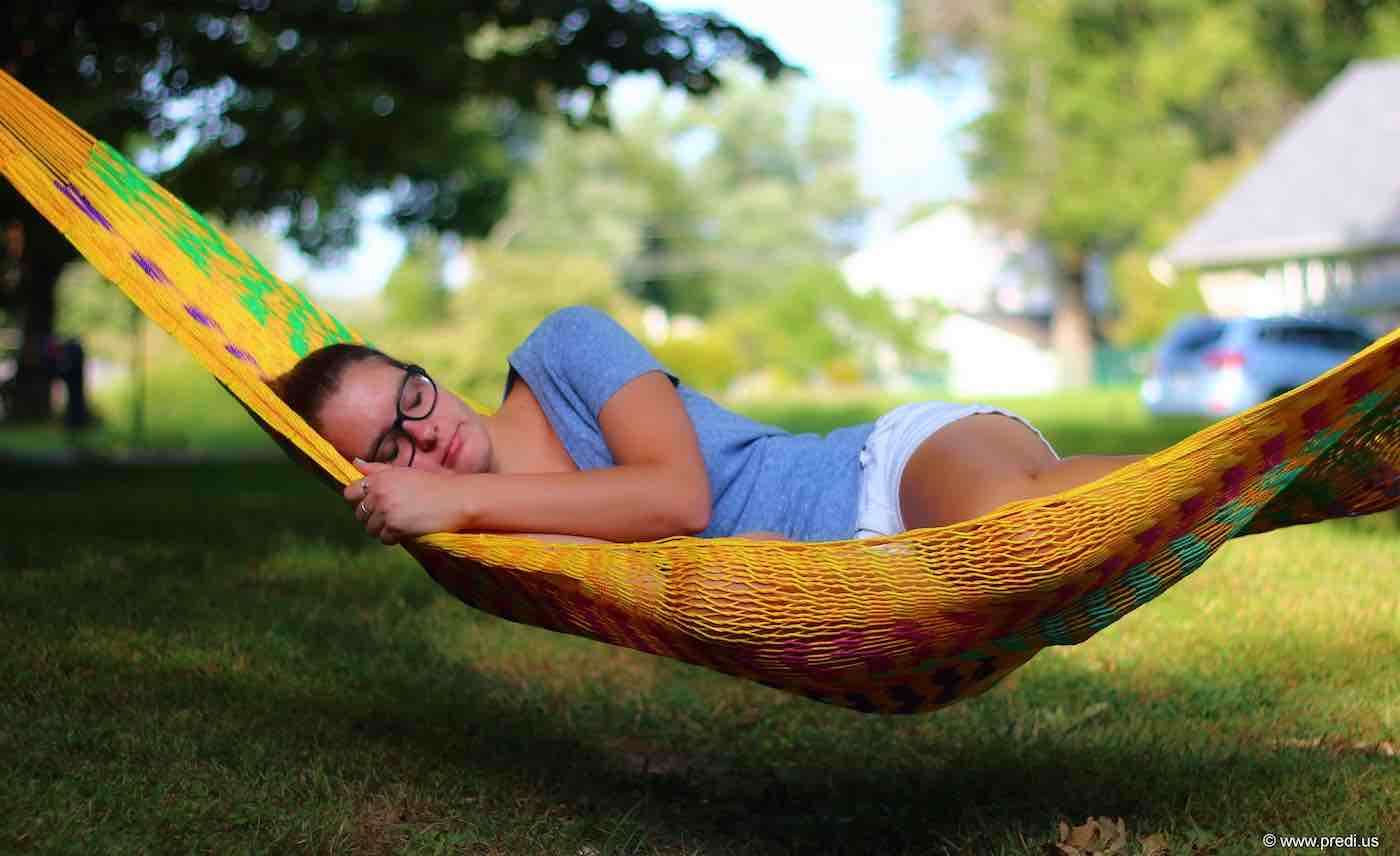86-Year-old Has Lost 120 Pounds Simply By Walking Around Her One-Bedroom Apartment
This senior is a prime example of how no one needs an expensive gym membership in order to live a healthier lifestyle.

Being rocked to sleep not only helps adults and babies get a better night's sleep - new research says that it also boosts their memory.
Most people are accustomed to rocking their babies in order to send them off to dreamland, but this study suggests that the rocking motion could also help adults too.
Young adults who were rocked to sleep not only experienced better sleep quality, but Swiss scientists found it also boosts memory consolidation during sleep.
The study's volunteer participants were gently rocked from side-to-side by a specially-designed bed until they fall asleep. Not only did the rocking help them to fall asleep faster, but once asleep, they also spent more time in non-rapid eye movement sleep, slept more deeply, and woke up less.
They also had better recall memory the next morning.
The findings could lead to new treatments that don't rely on sleeping tablets for insomniacs or even for those who suffer memory problems as they age.
"Having a good night's sleep means falling asleep rapidly and then staying asleep during the whole night," said biologist Laurence Bayer from the Sleep Medicine Centre of the University of Geneva.
"Our volunteers - even if they were all good sleepers - fell asleep more rapidly when rocked and had longer periods of deeper sleep associated with fewer arousals during the night.
Previous research by Bayer and colleagues showed continuous rocking during a 45-minute nap helped people to fall asleep faster and sleep more soundly. In the new study, 18 healthy young adults were brought into the lab for three nights of sleep.
The first night was intended to get them used to sleeping there. The second night, they slept on a gently rocking bed. On the third night, they slept on an identical bed that wasn't moving.
After analyzing the participants' sleep patterns, the researchers subjected them to memory tests.
"To see if this effect also affected memory, we subjected our participants to memory tests: they had to learn pairs of words in the evening and remember them in the morning when they woke up," said postdoctoral fellow Dr. Aurore Perraul. "And here too, rocking proved beneficial: the test results were much better after a night in motion than after a still night!"
Further studies showed that rocking affects brain oscillations during sleep.
The rocking motion caused an entrainment of specific brain oscillations of non-rapid eye movement sleep (slow oscillations and spindles). As a result, the continuous rocking motion helped to synchronize neural activity in the thalamo-cortical networks of the brain, which play an important role in both sleep and memory consolidation.
"Taken together, the present findings demonstrate that applying a rhythmic sensory stimulation, here, using a rocking bed during a whole night of sleep, promotes deep sleep and memory consolidation in healthy sleepers," said Bayer.
Another study that was conducted on mice by researchers from the University of Lausanne was the first to explore whether rocking promotes sleep in other species.
It used commercial reciprocating shakers to rock the cages of mice as they slept. While the best rocking frequency for mice was found to be four times faster than in people, results showed rocking reduced the time it took to fall asleep and increased sleep time in mice as it does in humans. However, the mice did not show evidence of sleeping more deeply.
Researchers had suspected the effects of rocking on sleep were tied to rhythmic stimulation of the vestibular system, the sensory system that contributes to our sense of balance and spatial orientation.
To explore this notion in the mouse, the researchers studied animals whose vestibular systems were disrupted by non-functioning otolithic organs, found in their ears.
They found that mice who lacked functional otolithic organs experienced none of the beneficial effects of rocking during sleep.
"Together with the companion animal study, the present human experiment thus provides new insights into the neurophysiological mechanisms underlying the effects of rocking stimulations on sleep," said Bayer. "These results may be relevant for the development of non-pharmacological therapies for patients with insomnia or mood disorders, or even for aging populations who frequently suffer from decreased deep sleep and/or from memory impairments."
The researchers say it will be essential in future work to explore the more precise, deeper brain structures involved in the effects of rocking on sleep.
Associate Professor Dr. Paul Franken, who conducted the second study in mice, said: "The results of the current study support previous observations on the effects of rocking on sleep and provide insight to the mechanistic aspects of the phenomenon.
"Overall, our findings strengthen the view that the vestibular system can be utilized to promote non-rapid eye movement sleep, supporting efforts toward a non-pharmacological, non-invasive approach to aid patients suffering from sleep disorders.
"Current tools, such as optogenetics, can help us decipher which structures, or even neuronal populations, receive the stimulus from the otolithic organs and transfer it further to the structures of the sleep circuitry.
"Mapping the network of communication between the two systems will provide with basic understanding, as well as novel clinical targets to cope with sleep disorders, like insomnia."
The studies were published in the journal Current Biology.
Be Sure And Pass On This Fascinating Article To Your Friends On Social Media - Photo by Predi, CC
Be the first to comment